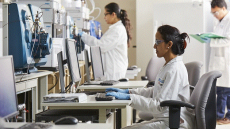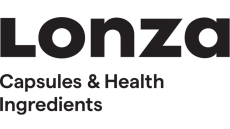Latest in Covance and GSKs' tussles with animal rights organisations
to a failed legal bid to prevent the broadcast of video footage
taken during a covert investigation of its US animal laboratory.
Meanwhile, GSK has had a positive result in extending a court order
severely restricting protests at its UK premises.
Covance's legal case against the European arm of People for the Ethical Treatment of Animals (PETA) was thrown out of court by a British judge in 2005, who characterised the findings of the investigation, conducted by PETA's US arm, as "highly disturbing".
The money paid this week relates to the costs and legal fees that Covance was ordered to pay PETA Europe, which it has now done after receiving a finalised amount from the animal rights organisation - £145,000 ($212,785).
Describing Covances' lab as a "monkey's Guantanamo Bay," PETA Europe managing director Ingrid Newkirk said in a statement: "Instead of spending a small fortune to try to cover up its abuses, Covance could have used the money to improve the hideous conditions for animals in its US prisons" .
This battle between the two organisations first kicked off in 2005 when PETA US revealed the video footage as part of an 11-month undercover investigation at Covance's animal research laboratory in Vienna, Virginia.
A statement from PETA said that the footage "exposed workers striking, choking and taunting monkeys."
According to PETA, they were also often denied access to medical attention, even for severe injuries.
An ensuing investigation by the US Department of Agriculture - conducted after PETA US filed a formal complaint - resulted in Covance being fined $8,720 for violations of the US federal Animal Welfare Act.
According to PETA, the violations included subjecting animals to painful procedures without any pain relief, physically abusing animals and denying animals veterinary care, among other things.
As one the world's largest contract research organisations (CROs), Covance - who undertakes research for large pharmaceutical firms like Pfizer - has a reputation to uphold and therefore the company fought hard to block publication of the footage.
Regarding this issue, the company also launched a lawsuit against PETA US - who was responsible for recording the footage - in 2005, which was later withdrawn.
In exchange for not suing the infiltrator for illegally filming within Covance's lab, which was in breach of contract, PETA US handed over all the video footage to Covance and signed an agreement not to try and infiltrate Covance's laboratories for the next five years.
However, the few minutes of the footage that had already been posted on the internet by PETA US was allowed to remain freely available.
Despite the potentially damaging footage, this part of Covance's business has continued to go from strength to strength and the company has just announced strong results for the first quarter of the year, which were driven by the early stage services business - of which the animal testing is a part of - describing the 25.8 per cent revenue growth in this segment as "exceptional".
The $212,785 the firm was ordered to pay to PETA therefore is but a dip in the ocean - sales in the segment totalled $179.2m in the quarter, compared to $142.4m in the previous year, while operating income rose 23 per cent to $43.7m during the period.
These strong results were broad-based across toxicology, chemistry, and clinical pharmacology, the company said.
"We were especially pleased to see our eight new clinical pharmacology sites produce very strong sequential revenue growth and achieve profitability in the quarter," said Joe Herring, the company's CEO in a statement.
The CRO last May bought the eight early phase clinical development sites of Radiant Research for approximately $65m in a bid to expand its clinical pharmacology bed capacity and broaden its access to special patient populations for Phase Ib/IIa clinical studies.
This move seems to have paid off.
Meanwhile, PETA isn't the only problem that Covance is currently having to deal with.
The company has been receiving opposition from local groups who are resisting the CRO's plans to build a large new animal-testing facility in Chandler, Arizona.
Many Chandler residents attended a hearing this week to air concerns over Covance's proposed air quality permit for the site.
Much of the concern centres around how the company plans to dispose of the animal carcasses and the potential impact on air quality.
Covance has said in its permit application that it will only temporarily store the carcasses at the Chandler premises before removing them to be destroyed at off-site facilities.
However, many residents are reportedly skeptical and suspect that the firm will later apply to install an incinerator on the premises and dispose of the waste this way, as it currently does at its facility in Virginia.
Attempts were made by Outsourcing-Pharma.com to reach Covance for comments, however, there was no response by the time of publishing.
Meanwhile, UK pharma giant GlaxoSmithKline (GSK) has recently had a positive result with its struggle against animal rights protesters in its bid to seek an extension on a temporary High Court injunction banning them from the doors of all its UK premises.
The injunction allows for the creation of exclusion zones around GSK's 18 UK sites and homes of employees, and also limits the number of demonstrations at the company's premises to a timeslot of 10am-4pm once every 28 days.
A maximum of 30 participants is allowed per demonstration and noise pollutants such as megaphones and whistles are banned and the injunction is to now remain in place until the judge residing over the case makes a decision.
Experiments on animals is a highly controversial and emotionally charged issue and the majority of those who are against it in the UK choose to express their opposition via peaceful protests.
There are, however, a handful of activists that choose to take the law into their own hands and resort to violent and intimidating acts.
GSK said it had sought legal protection after experiencing a "significant increase in animal extremist incidents" against the company and its employees between January and March this year.
Such alleged incidents include property damage and vandalism; a physical attack on the home of a senior executive; as well as threats and harassment against staff.
The company has attracted the wrath of protesters through its business association with Huntingdon Life Sciences, a controversial animal research company located in Cambridgeshire.
Huntingdon itself has been the subject of fierce protests and extremist incidents over the past few years - in 2002, the company even relocated its headquarters from the UK to the calmer waters of the US after its employees, shareholders and bankers were harassed.
The UK has a particular problem with animal rights extremism, which is currently the country's most common form of domestic extremism, and only this week the police made 30 arrests in dawn raids across the country as efforts are being stepped up to stamp out this illegal behaviour, where participants do more harm than good to the cause for which they stand.















